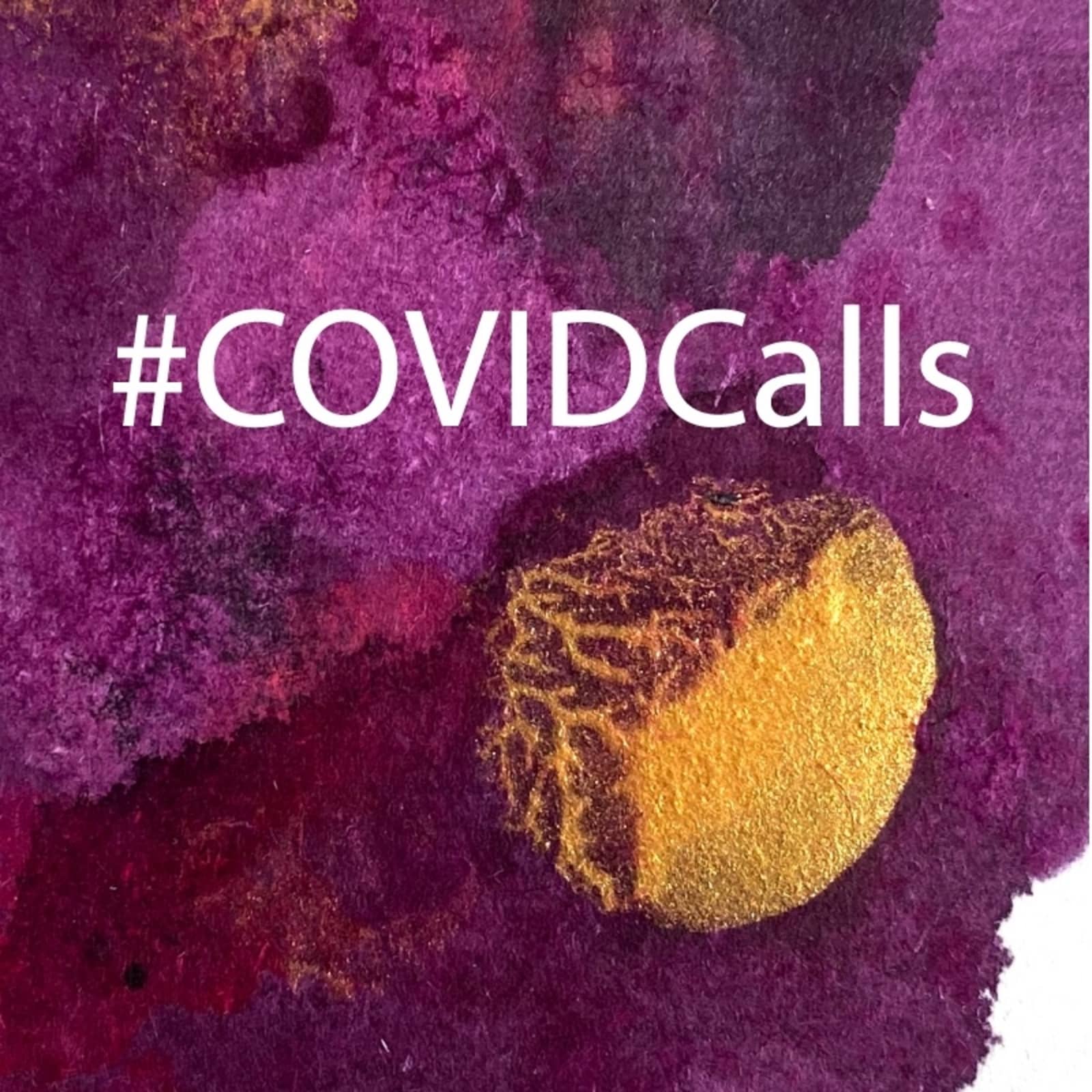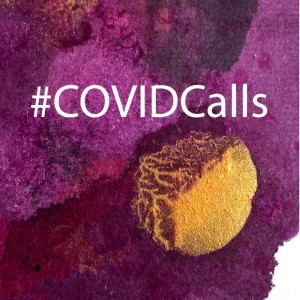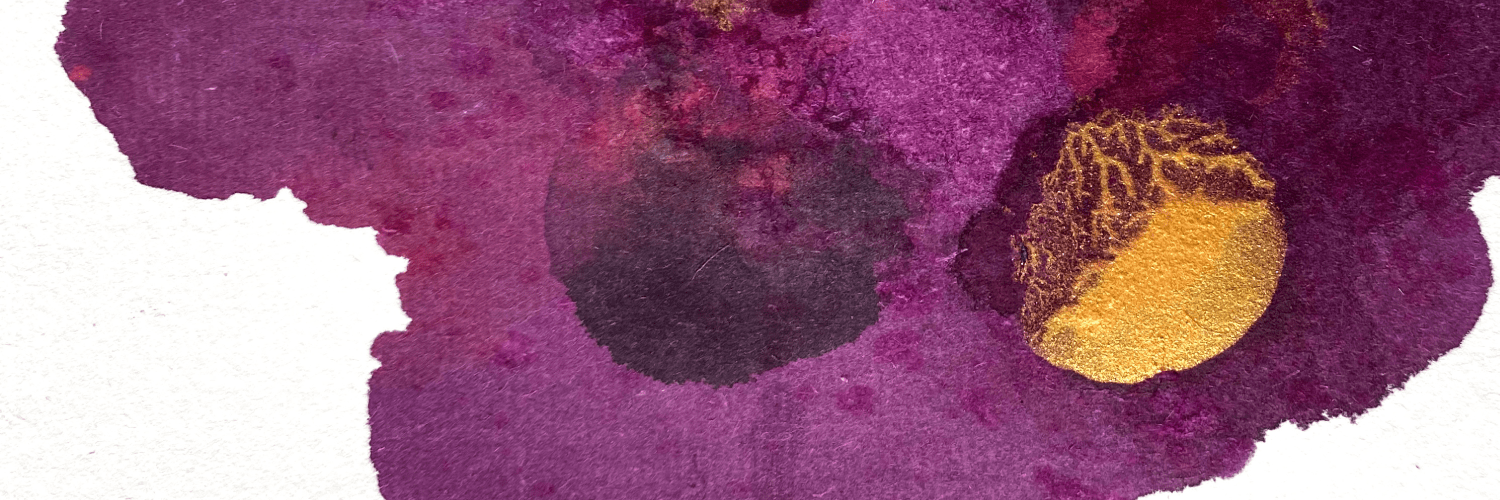
56K
Downloads
504
Episodes
A daily discussion of the COVID-19 pandemic with a diverse collection of disaster experts - hosted by Dr. Scott Gabriel Knowles, a historian of disasters at KAIST in Daejeon, South Korea.
A daily discussion of the COVID-19 pandemic with a diverse collection of disaster experts - hosted by Dr. Scott Gabriel Knowles, a historian of disasters at KAIST in Daejeon, South Korea.
Episodes

Thursday Oct 07, 2021
EP #353 - 10.06.2021 - Risk Communication and COVID-19, w/ Guest Host Esther Chernak
Thursday Oct 07, 2021
Thursday Oct 07, 2021
Welcome to the 353rd episode of the COVID Calls, a daily discussion of the COVID-19 pandemic with a diverse collection of disaster experts. My name is Esther Chernak, and I am your guest host on this session of COVID Calls. I teach at the Drexel University Dornsife School of Public Health, where I oversee the Center for Public Health Readiness and Communication. I am an infectious disease physician who has worked in both academia and in public health departments, and I am delighted to be hosting today’s session, which will focus on crisis and risk communication during this COVID pandemic.
Dr. Vincent Covello, director of the Center for Risk Communication, is one of the world’s leading experts and practitioners on risk, high stress, and crisis communications. He is the author of more than 150 articles in scientific journals and the author/editor of more than 20 books. Dr. Covello is a consultant, writer, speaker, and teacher. He is a frequent keynote speaker and has conducted communication skills training for thousands. Dr. Covello has served as a risk, high concern, and crisis communications adviser to numerous public and private sectors organizations including over 400 of the 500 Fortune 500 companies, and with over 200 government agencies, including the World Health Organization, the U.S. Department of Health and Human Services, the U.S. Environmental Protection Agency, the U.S. Department of Defense, and the U.S. Centers for Disease Control and Prevention. His work has been applied nationally and globally to a wide range of topics, including radiological incidents, disease outbreaks, industrial accidents, water contamination, air pollution, food safety, climate change, physician-patient communications, and organizational change. Most recently, he has worked closely with the 50 U.S. State Health Directors on their responses to questions from the media and the public on COVID-19.
Tom Hipper is the Associate Director of the Center for Public Health Readiness and Communication (CPHRC) at the Drexel University Dornsife School of Public Health, where he recently managed a CDC-funded grant project designed to address the disaster information needs of children with special health care needs. Mr. Hipper has also managed several projects related to communications during public health emergencies, including the creation of a library of social media messages for use by emergency response and public health spokespersons in different hazard scenarios. He is Assistant Teaching Faculty at Drexel University, where he teaches courses in crisis and risk communication. Mr. Hipper is also a Fellow of the Center for Risk Communication where he works closely on many risk communication projects and trainings with the Center’s Director, Dr. Vincent Covello.

Wednesday Oct 06, 2021
EP #122 - 9.8.2020 - Public Health History & COVID-19
Wednesday Oct 06, 2021
Wednesday Oct 06, 2021
Today we will talk with Graham Mooney and Christos Lynteris.
Christos Lynteris is a medical anthropologist, and senior lecture at the Univ. of St. Andrews in the UK. His research focuses on the anthropological and historical examination of epidemics, zoonosis, epidemiological epistemology, medical visual culture, colonial medicine, and epidemics as events posing an existential risk to humanity.
Dr Lynteris' new project (2019-2024) The Global War Against the Rat and the Epistemic Emergence of Zoonosis will examine the global history of a foundational but historically neglected process in the development of scientific approaches of zoonosis: the global war against the rat (1898-1948).
Dr Lynteris' recently completed project Visual Representations of the Third Plague Pandemic (2013-2018) collected and analysed photographs and other visual documents of the third plague pandemic (1855-1959).
For updates on Christos Lynteris' Global War Against the Rat and the Epistemic Emergence of Zoonosis and Visual Representations of the Third Plague Pandemic projects: @visualplague
Graham Mooney is an Associate Professor in the Dept of the History of Medicine at JHU. He has an adjunct appointment in the School of Public Health Dept of Epidemiolgy.
His book Intrusive Interventions: Public Health, Domestic Space, and Infectious Disease Surveillance in England 1840-1914 (University of Rochester Press, 2015), examines the history of public health interventions such as infectious disease notification, institutional and domestic isolation, disinfection, and contact tracing under late 19th/early 20th century liberalism. The book I'm working on right now is Harm City: Health and Injustice in Urban America is based on a class that I teach at the Johns Hopkins Bloomberg School of Public Health. I use a case study of race and class politics in Baltimore that explore the fracturing of public health systems and policy in neo-liberal American cities.

Tuesday Oct 05, 2021
EP #352 - 10.04.2021 - Mass Death as Everyday Life w/Mary Dudziak
Tuesday Oct 05, 2021
Tuesday Oct 05, 2021
Today I talk about mass death as everyday life with legal historian Mary Dudziak.
Mary Dudziak is the Asa Griggs Candler Professor of Law at Emory University. Her most recent book is War Time: An Idea, Its History, Its Consequences (Oxford University Press, 2012). Her current book project argues that the culture of war death in the U.S. helps explain the decline of political restraints on the war powers. During the Covid era she has been obsessing over the way a mass death experience has, essentially, been normalized.

Tuesday Oct 05, 2021
Tuesday Oct 05, 2021
Today I talk about public health for transgender people and COVID-19 in India with Dr. Aqsa Shaik.
Dr. Aqsa Shaikh (She/Her) is an out and proud trans woman.
She is Associate professor of Community Medicine, Nodal Officer for Covid Vaccination Centre, Hamdard Institute of Medical Sciences and Research. Aqsa is one of the investigators in Clinical trial of Sputnik V, investigator in TransCare Project, and WHO Unity Studies on Covid. She is co investigator in transgender studies on health access and medical curriculum at Sangath India. Aqsa is Founder-Director of Human Solidarity Foundation.

Friday Oct 01, 2021
EP #350 - 09.30.2021 - Disaster Research in COVID Times w/Dave Neal
Friday Oct 01, 2021
Friday Oct 01, 2021
Today I talk about disaster research and emergency management in the COVID era with disaster expert Dave Neal.
David M. Neal, Ph.D., recently retired as Professor Emeritus in Fire and Emergency Management from Oklahoma State University and is now a Visiting Scholar and Affiliated Scholar with Indiana University South Bend, and an Affiliated Researcher with the Risk and Crisis Research Centre at MidSweden, University.
Bachelor’s and Masters from Bowling Green State University. DRC 1981-1984 (PhD 1985) PhD in Sociology from The Ohio State University.
He has conducted disaster research since 1978 and taught his first disaster class in 1979. He has also received funding for his research from the National Science Foundation, Department of Homeland Security, Federal Emergency Management Agency, National Aeronautics and Space Administration, the American National Red Cross, and the Alabama Consortium on Higher Education among others.
His academic publications can be found in such journals as International Journal of Mass Emergencies and Disasters, Natural Hazards, Journal of Emergency Management, Disaster Prevention and Management, International Journal of Risk Reduction, Sociological Focus, and Sociologiska Forsking among others.
He has taught in emergency and disaster management degree programs since 1989. In 2015, he received the Blanchard Award for Excellence in Emergency Management Education.

Friday Oct 01, 2021
EP #349 - 09.30.2021 - Environmental History in COVID Times
Friday Oct 01, 2021
Friday Oct 01, 2021
Today I talk about environmental history and activism during the COVID pandemic with Andrea Gaynor, Katie Holmes, and Ruth Morgan.
Prof Andrea Gaynor is an environmental historian and ARC Future Fellow at the University of Western Australia, where she is researching histories of urban wild nature. She is vice-president of the European Society for Environmental History and a convenor of the Beeliar Group of Professors for Environmental Responsibility.
Prof Katie Holmes is an environmental historian teaching at La Trobe University in Melbourne and is Director of the Centre for the Study of the Inland. She writes on agricultural history and is currently working on two separate projects, one on drought and one on water. She also works in gender and oral history.
https://scholars.latrobe.edu.au/kbholmes
Dr Ruth Morgan teaches at the Australian National University, where she is the Director of the Centre for Environmental History. She is writing an international history of climate change, under contract with Bloomsbury, and she is a Lead Author in Working Group II of the Intergovernmental Panel on Climate Change’s Sixth Assessment Report.

Thursday Sep 30, 2021
EP #348 - 09.29.2021 - COVID in North Korea
Thursday Sep 30, 2021
Thursday Sep 30, 2021
Today I talk about COVID and COVID vaccination in North Korea with my guests Kee Park, C. Yoonhee Ryder, and Nagi Shafik.
Dr. Nagi M. Shafik is a medical doctor with postgraduate degree in Public Health working as a researcher with the Korea Health Policy Project at Harvard Medical School. He has more than 35 years’ experience in both clinical and public health in Egypt, Algeria, Yemen, Cambodia, DPR Korea, India, Indonesia and Thailand. For more than 30 years, he worked overseas with different organizations: UNDP, Health Net International, Medecins Sans Frontiers, The World Health Organization and UNICEF.
From 2001 to 2019, he worked intermittently in DPR Korea for UNICEF and the WHO. In 2017, 2018 and 2019, he took three assignments with UNICEF DPRK to conduct field monitoring visits.
Yoonhee Ryder is a research assistant for the Korea Health Policy Project at Harvard Medical School. She is a medical student at the University of Michigan Medical School and is currently earning a master’s degree in Clinical Research through the Michigan School of Public Health. She is a former recipient of the State Department’s Critical Language Scholarship to study Korean at Yonsei University, Wonju Campus. Before medical school, Yoonhee served as a Peace Corps health volunteer in Togo, West Africa, and is passionate about global health and global surgery.
Dr. Kee B. Park is the Director of the Korea Health Policy Project at Harvard Medical School where he studies the geopolitical factors influencing health in North Korea and the relationships between international security, health, and human rights and health diplomacy. Since 2007, he has visited North Korea over 20 times to work alongside North Korean doctors as well as to support country driven health system strengthening efforts. His last visit was in November 2019.
He is a member of the National Committee on North Korea and the Council of Korean Americans. He received his MD from Rutgers Medical School and MPH from Harvard Chan School of Public Health.

Wednesday Sep 29, 2021
EP #347 - 09.29.2021 - Legal Regimes Under Pandemic Conditions: The Case of Plastics
Wednesday Sep 29, 2021
Wednesday Sep 29, 2021
Today I talk with Geoffrey Hughes and Tridibesh Dey about legal regimes under pandemic conditions—especially in Jordan and India.
Tridibesh Dey is a final-year PhD candidate in the Anthropology of Science and Technology at the University of Exeter. His broader research themes involve plastics, process, technologies of plastic waste management, and infrastructures. His thesis, due for submission this year, is a careful ethnographic study of the different processes of plastic and practical networks, including informal recycling and a combustion-based large-scale national infrastructure of solid waste management being developed in India. Conceptually, it examines mutability as a tool to study plastic's complex ubiquity.
Geoffrey Hughes is a lecturer in anthropology at the University of Exeter and Associate Editor of the Journal of Legal Anthropology. His work explores how people in the contemporary Middle East are responding to new technologies for large-scale population management. He has written a number of articles on various social engineering projects in Jordan. His new book is entitled, Kinship, Islam and the Politics of Marriage in Jordan: Affection and Mercy.

Wednesday Sep 29, 2021
Wednesday Sep 29, 2021

Saturday Sep 25, 2021
EP #345 - 09.23.2021 - Presidents and Pandemics
Saturday Sep 25, 2021
Saturday Sep 25, 2021
Today I talk about the US presidency, COVID, and the history of pandemics with presidential historian Lindsay Chervinsky.
Dr. Lindsay M. Chervinsky is a Senior Fellow at the Center for Presidential History at Southern Methodist University, and the Kundrun Open-Rank Fellow at the International Center for Jefferson Studies, and a Professorial Lecturer at the School of Media and Public Affairs at George Washington University. She received her B.A. with honors in history and political science from George Washington University, her masters and Ph.D. from the University of California, Davis, and her postdoctoral fellowship from Southern Methodist University. Previously Dr. Chervinsky worked as a historian at the White House Historical Association. Her writing has appeared in the Wall Street Journal, Ms. Magazine, The Daily Beast, The Bulwark, Time Magazine, USA Today, CNN, and the Washington Post. Dr. Chervinsky is the author of the award-winning book, The Cabinet: George Washington and the Creation of an American Institution.
